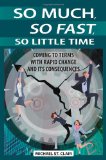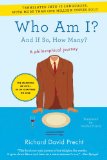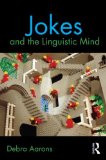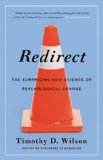new book – ‘So Much, So Fast, So Little Time: Coming to Terms with Rapid Change and Its Consequences’
August 26, 2011
So Much, So Fast, So Little Time: Coming to Terms with Rapid Change and Its Consequences by Michael St Clair (Praeger, 2011)
Book description from the publisher:
Twenty-first-century technology opens up fabulous opportunities, but also changes how we relate to each other and warps our sense of time, reality, duty, and privacy. Technologies and time-saving devices make everything happen faster, with the result that we feel busier than ever before. “Free time” seems in danger of extinction. So Much, So Fast, So Little Time: Coming to Terms with Rapid Change and Its Consequences provides fascinating insights about how our changing world is changing our families and our personal relationships; how we travel, behave as consumers, and communicate; and how we entertain ourselves and deal with our anxieties.
Written in a popular, accessible style, this book describes seven areas of significant societal change, providing concrete examples and engaging stories to illustrate how drastically our right-now mindset has shifted our perception and experience of the world. In the last chapter, the author makes some practical suggestions on how to take thoughtful action to respond to the onslaught of inevitable change.
See also: Google Books preview







